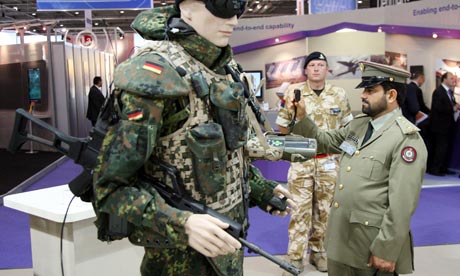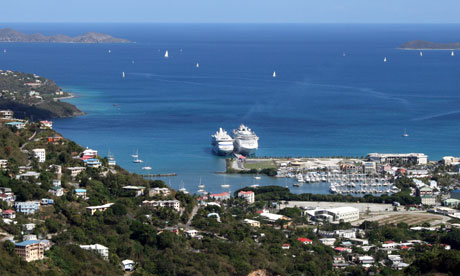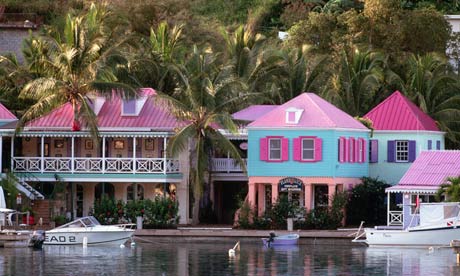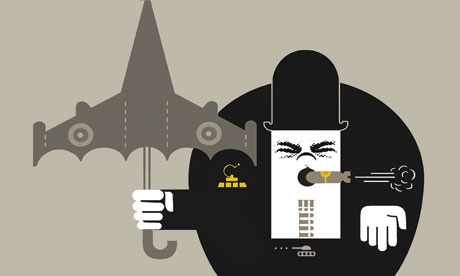For the British people, the Royal British Legion’s Festival of Remembrance is a chance to honour the men and women killed and maimed in our name. For the Legion’s president, Lieutenant-General Sir John Kiszely, however, it is also “a tremendous networking opportunity” which “commercial people can get in on”.
The general’s tongue had been loosened by a £110,000 offer from South Korean arms dealers, who wanted his help selling their products to the Ministry of Defence. His Legion role, he told them, was “extremely useful for all these contacts”. As he explained: “If I tried to book in… to have a meeting on behalf of a company, I probably wouldn’t get past the door.” But “with Andrew Robathan [the Armed Forces minister], I would get into his office by saying, 'As president of the British Legion, you know, it’s time’… and that’s when you sow the seed.”
To the same generous Koreans, Admiral Sir Trevor Soar, ex-Commander-in-Chief Fleet and self-proclaimed “MoD warrior”, offered to “target” his former subordinates and “get them interested”. Sir Trevor, who only left the Navy this year, is still covered by the two-year lobbying ban commonly imposed on retired officers, but told his would-be clients that the restriction had “no legality” and he would “just basically ignore it”.
General Sir Mike Jackson, head of the Army during the Iraq War, offered to “dangle a fly in the waters” on the Koreans’ behalf. General Lord Dannatt, another ex-chief of the general staff and former adviser to David Cameron, boasted about how he’d avoid anti-lobbying rules by “targeting” an old school contemporary who happens to be the MoD’s permanent secretary. For a “reasonable” £100,000 for 24 days’ work a year, he’d set up lunch with the chief of defence procurement, Bernard Gray. Air Chief Marshal Lord Stirrup, former chief of the defence staff, told the South Koreans he would “grill” former colleagues and ministers on their behalf over private dinners at his house in London. “When do we start?” he asked.
This morning, amid the ashes of several distinguished reputations, the question is: where will it end? The chequebook-ready Koreans were, of course, undercover reporters from The Sunday Times. Of the eight senior former officers they approached, only two refused their blandishments completely. And for the Ministry of Defence, the implications are particularly seismic. The department is notorious throughout Whitehall for signing colossally expensive contracts that deliver poor value for taxpayers. Can there possibly be any connection between this and the fact that so many of its people go on to work for defence contractors?
One of the most heavily criticised recent contracts is for the Royal Navy’s two new aircraft carriers. These will cost taxpayers more than £6 billion, even though one will be immediately mothballed and the other will carry no aircraft until 2020. At least four top officers and ministers involved – including the heads of the Navy and the RAF, the vice-chief of the defence staff, and the defence procurement minister, Baroness Taylor – went on to join companies involved.
Then there is the contract dubbed the “worst deal in history”: to give the Air Force 14 new Airbus A330 transport/tanker aircraft. Bought by a civilian airline, A330s cost as little as £85 million each, or £1.2 billion for 14. But the MoD is paying £10.5 billion – for aircraft it will not even own, but lease. Nor did the price include standard military fitments such as flight-deck armour, meaning that the jets were unable to fly into any war zone.
Roughly half the price, according to the National Audit Office, comprises financing costs and profits for AirTanker, the PFI consortium that actually owns the planes. Over the last few years, more than 30 MoD officials, including some directly involved in negotiating the deal, have moved from the ministry to the companies concerned. As Paul Flynn, a Labour MP who has campaigned on the issue of defence procurement, told me: “I am not suggesting misconduct by any individual here, but the prospect of retirement work is potentially corrupting.”
All this is known as the “revolving door”. In 2009/10, the latest year for which full figures are available, 326 officers or MoD officials were cleared to join the private sector. Of these, 240 went to defence companies. Fully 20 were generals, admirals or air marshals.
The problem is not confined to the MoD. At the Cabinet Office, John Suffolk has moved from the highly sensitive post of chief information officer to become global cybersecurity officer at Huawei, a Chinese company accused by the Pentagon of having “close ties” to Beijing’s military. Lord Hunt, the former Labour health minister, joined Cumberledge Connections, a health lobbyist run by a former Tory health minister. Baroness Smith of Basildon, once the minister responsible for information technology, has joined Vertex Data Science, a computer outsourcing firm.
The body supposed to regulate all this is called Acoba, the Advisory Committee on Business Appointments, part of the Cabinet Office. When they leave public service, ministers and senior officials must ask the committee to approve any jobs they’re offered (more junior staff, including the vast majority within the MoD, are dealt with at departmental level). But Acoba seems extremely reluctant to place its foot in the revolving door. In fact, over the past 15 years, it has not vetoed a single application. According to its annual reports, it considered 944 applications between 1996 and 2011. Of these, 412 were approved with conditions and 532 unconditionally. None was rejected.
Even where conditions were imposed – typically a ban on lobbying former colleagues – none has ever lasted for more than two years. Acoba’s chairman, the former minister Lord Lang, told MPs that longer prohibitions would be a “restraint of trade” and against applicants’ human rights. And, as Sir Trevor told the undercover reporters, even the existing bans have no legal or contractual standing. Acoba itself has no powers to police them: Mr Suffolk, the Huawei employee, has been told he must not “draw on any privileged information” from his time at the Cabinet Office, but that condition seems almost impossible to enforce. Last year, 13 former ministers, officials and military officers – including the former Cabinet Secretary, Lord O’Donnell – did not even bother to approach Acoba before taking new jobs.
Lord Lang has insisted that the committee “works extraordinarily well”. But in 2010, rather more extraordinarily, he was himself filmed by undercover reporters – this time from Channel 4’s Dispatches – offering his services to a fake lobbying company, though he told them he would do no lobbying personally. Mr Flynn says that the Commons’ public administration committee wanted to veto Lord Lang’s appointment to Acoba, but could not do so because it had already been announced. Instead, it has this year published a report calling for the entire organisation to be scrapped.
This week’s scandal seems sure to hasten that event. But replacing Acoba will be complicated. Those exposed yesterday have enjoyed careers for life and lavish pensions – one more reason why their conduct is so questionable. But younger civil servants and officers no longer have such luxuries. If they are to be able to support themselves, any new system must allow them to transfer between employers without penalising them for their periods of public service.
More broadly, yesterday’s disclosures might trigger a wider reappraisal of Britain’s reverence for its top military officers. The brass are among the few senior public servants still relatively immune from public criticism, with the monumental failures of Iraq and Afghanistan customarily blamed on dishonest politicians or cheese-paring officials. In fact, many of the most pig-headed mistakes were made by Britain’s military leadership.
Yet old generals can also be a vital check and balance in the system: protesting against defence cuts, criticising the Government when it strays off course. Ministers will love it if they are banned from the MoD’s precincts, as the current Defence Secretary, Philip Hammond, suggested yesterday, but the Forces may well come to regret it. Still, should that happen, the generals really will have no one to blame but themselves.








 199 Comments
199 Comments